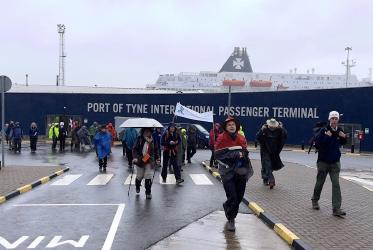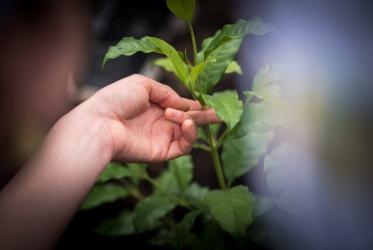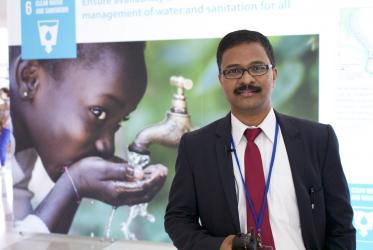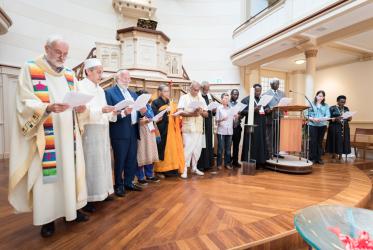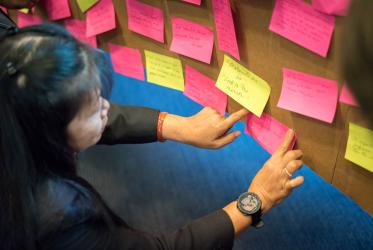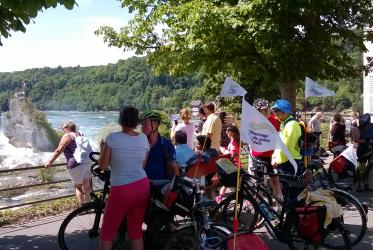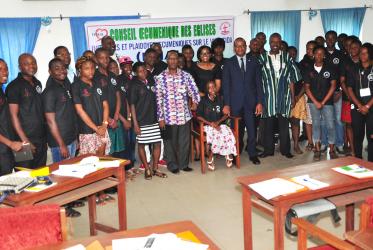Displaying 1 - 20 of 41
Ecumenical conference features theological reflections on ecology
16 February 2021
Churches should use their voice on climate change
26 February 2020
Young people in Togo: “Hear our voice! We want to tell our stories!”
07 November 2019
Knowledge of gender roles deepens in Togo
03 June 2019
WCC expresses sadness, solidarity after Notre Dame fire
16 April 2019
What difference does dressing in black make?
02 August 2018
Working toward an AIDS-free generation
26 July 2018
Building bridges of faith in the HIV response
25 July 2018
Building Bridges in the global HIV response
25 July 2018
Churches in France encourage ecological conversion
24 January 2018
A cycling pilgrimage of justice and peace
07 August 2017
Tveit: Time to follow up on COP21 and to prepare for Davos
17 December 2015

